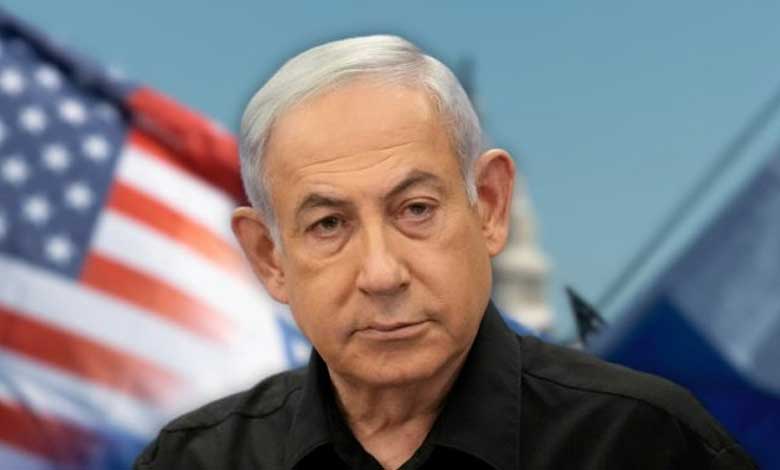Israeli PM Netanyahu Signals Progress in Gaza Truce Deal Talks Amid Uncertainty
The remarks have sparked widespread interest and raised hopes for a resolution to the ongoing conflict.

Jerusalem: Israeli Prime Minister Benjamin Netanyahu has acknowledged progress in ongoing negotiations for a ceasefire-for-hostages deal with Hamas.
However, he emphasized that the timeline for reaching an agreement remains unclear. The remarks have sparked widespread interest and raised hopes for a resolution to the ongoing conflict.
Table of Contents
Netanyahu’s Statements on Ceasefire Talks
Addressing the Knesset, Israel’s parliament, on Monday, Netanyahu said, “I do not know how long it will take,” while reiterating his commitment to bringing all hostages back home. His statements underline the complexity of the negotiations and the challenges ahead in securing a deal.
Netanyahu’s comments come as mediators from Qatar, Egypt, and the United States work tirelessly to bridge the gaps between the two sides. The involvement of international mediators has been critical in facilitating dialogue, but a breakthrough remains elusive.
Foreign Minister Sa’ar Highlights Phased Framework
During a closed meeting of the Knesset Foreign Affairs and Defence Committee, Israeli Foreign Minister Gideon Sa’ar provided details about the proposed agreement. Describing it as a “phased, gradual framework,” Sa’ar’s remarks shed light on the potential structure of the truce deal.
Key elements of the proposed framework include:
A Humanitarian Phase: This initial phase would involve a 42-day ceasefire and the release of some hostages held by Hamas.
Timeline Uncertainty: While the ceasefire could last anywhere from six months to 10 years, the exact duration would depend on developments on the ground.
Israeli Officials on the Progress of Negotiations
Diaspora Minister Amichai Chikli, speaking to Kan Reshet Bet public radio, also confirmed progress in talks. “There has been some progress toward an agreement,” Chikli said, adding that the parties are closer to a deal now than in previous months.
Chikli emphasized the humanitarian phase as a crucial starting point, highlighting the potential for a longer-term resolution. However, he cautioned that previous attempts at negotiations have failed due to disagreements over the length and conditions of the ceasefire.
Also Read | Israeli strikes in Gaza kill at least 22 as Vatican envoy visits Christians for pre-Christmas Mass
Hamas’ Stance and Ongoing Challenges
Hamas, which launched an assault on southern Israel on October 7, 2023, remains firm in its demands. The attack resulted in the deaths of approximately 1,200 people and the kidnapping of around 250 hostages. While Hamas has pushed for an end to the war entirely, Israel maintains that any resolution must include the removal of Hamas’ control over Gaza and the continuation of its military presence in the enclave.
Israeli estimates suggest that about 100 Israeli and foreign hostages are still being held by Hamas in Gaza, with dozens presumed dead.
Humanitarian Crisis in Gaza
Israel’s military response has resulted in widespread devastation across the Gaza Strip. According to Gaza-based health authorities, at least 45,317 people have been killed in the ongoing Israeli strikes as of Monday. The humanitarian situation remains dire, with much of the region reduced to rubble and international aid efforts struggling to reach those in need.
International Mediation Efforts
The negotiations have seen significant involvement from Qatar, Egypt, and the United States, with mediators working to address contentious issues such as the duration of the ceasefire and conditions for hostages’ release. These efforts underscore the importance of international collaboration in resolving protracted conflicts.
Global Reactions and Implications
The possibility of a ceasefire has drawn mixed reactions globally. While many nations and organizations have welcomed the progress, others have raised concerns about the sustainability of the proposed framework. The outcome of these negotiations will have far-reaching implications for the Middle East and the broader geopolitical landscape.
Conclusion
As Israel and Hamas inch closer to a potential ceasefire-for-hostages deal, uncertainties linger about the timeline and long-term implications of such an agreement. The humanitarian toll of the conflict continues to mount, with both sides under pressure to find a resolution. The coming weeks will be critical in determining whether these efforts lead to lasting peace or another missed opportunity.
